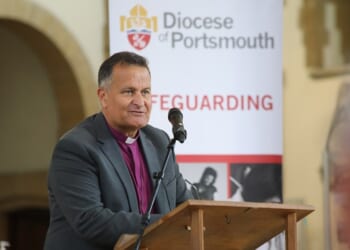YOUNG male Finns attracted to Christianity regard church as a place where they can “just be a normal man” and have their voice heard, early findings from a new qualitative study suggest.
Other themes that emerged in the interviews include a desire for stability in an increasingly insecure world, and a determination to make an “authentic choice” to pursue Christianity, despite their parents’ atheism.
“One of the topics they talk about a lot is that non-religiousness or atheism is so last-season,” Professor Kati Tervo-Niemelä, professor of practical theology at the University of East Finland, said last week. “They talk about how this religiousness is ‘our thing’, a counter-cultural thing for them. . .They think of it as a counterforce to individualism and hedonism.”
To date, 30 young men have been interviewed in a study, “Religion, Meaning and Masculinities: Religion in the lives of men in Finland”, funded by the Finnish Research Council and exploring the drivers behind growing religiosity in this demographic.
A longitudinal study, co-led by Professor Tervo-Niemelä with the co-operation of the Evangelical Lutheran Church of Finland, and published last year, found that between 2019 and 2024 the percentage of young male confirmands who professed a belief in the existence of God grew from a little over one third to almost two-thirds. The proportion attending confirmation preparation decreased by only a few per cent.
Fewer than ten per cent of Finns attend church regularly, but confirmation remains a popular rite of passage in the national Lutheran Church (Finland’s other national Church is Orthodox) — which, as part of the Porvoo Communion, is in communion with the Church of England. About 73 per cent of young people are confirmed. More than 100,000 young people in confirmation preparation have responded to the annual survey, accounting for as much as one third of all 15-year-olds. Of the young women who participated, half professed a belief in God.
A key theme emerging from interviews with young men was “the sense of safety they feel within Christianity”, Professor Tervo-Niemelä said, pointing to the wars in Ukraine and Gaza, the pandemic, and financial instability. “They also feel that those people that they find within church are somehow safe people; they are trustworthy and warm.” The safety sought was also “existential”, she said. “It is one of the few contexts where they feel that they don’t have to pretend to be someone else. They can be weak and vulnerable.”
Another theme was the appeal of “permanence” and the Church’s provision of a “clear framework of morals and values and order; it’s the only stable anchor in the world where everything else seems to change constantly.” Young men talked about a link to tradition, family, and culture, and about Christianity as “a link to being European and a Western person and separating them from Islam and that world.”
Tradition and stability was valued not only by conservative interviewees, but by those who regarded themselves as liberal, Professor Tervo-Niemelä said. Analysis of the political and religious affiliations of young people through the Youth Barometer Study indicated that it was “simplifying too much if we say that if people say they are attracted to Christianity it is because they are conservative and they want to find support for that”.
Christianity offered a “positive male image”, interviewees told researchers. They expressed the view that “in this current world, male voices are often not heard. You are not allowed to be a proper man; you are sort of silenced,” Professor Tervo-Niemelä said. “They sort of feel that Christianity is a forum or place where you can be a normal man still. . . Many of them are opposing toxic masculinity, and they are opposing that feminist masculinity. They want to be just normal.” Some felt that “woke discussion is going far too far.”
Several of those interviewed were LGBT, and spoke of their caution about finding the right church community: “The feeling of being accepted is something that really draws them to these communities.”
The confirmation study data was reflected in feedback from parishes, she said. Church workers had asked her: “What do we do with these young men? We are not used to having these young men, and they want to be active with us, and we don’t have anything to offer them.”
The Finnish media had also changed in the past two years, she observed, portraying young people’s religiosity in a “very positive light”, with profiles of young people “very proudly expressing their faith”. Social media had played an important part in connecting young men who were talking openly about their faith.
Having expected a continuing decline in belief when analysing the longitudinal data, she had felt confident only in her third year that, “yes, there must be something going on,” she said. “There is something surprising going on around young men.”















